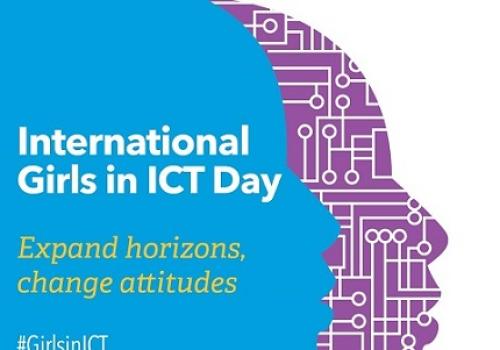On 25th April, 2019 the SADC Secretariat joins the rest of the world in commemorating the International Girls in ICT Day, an annual International Telecommunication Union (ITU) event that aims to encourage and empower girls and young women to consider studies and careers in the growing field of ICT.
Since its inception in April 2011, Girls in ICT Day has received tremendous support around the world. To date, over 11,100 events have been hosted in 171 countries worldwide, reaching an estimated 357,000 girls.
This year, the day is commemorated under the theme; Expand horizons, change attitudes. Not only does the theme help in the global effort to bridge the digital divide, but also encourages girls and young women to pursue studies and careers in Science, Technology, Engineering and Math (STEM).
In today’s world, requisite skills in ICT are paramount. Any technology job on the market has a strong component of ICT. Therefore, technology qualifications on digital skills will provide young girls with a competitive edge in the job market and empower them to change their futures and the world around them. The World Employment and Social Outlook: Trends 2019 by International Labour Organisation (ILO) indicates that 59.1 million young people between 15 to 24 years old are unemployed worldwide. However, it is estimated that in ten years’ time, there will be in excess of 20 million technology jobs that would not be filled due to the lack of qualified ICT specialists. Hence, the pressing need for a wide range of ICT talents in the technology industry.
With the Fourth Industrial Revolution at our doorstep, internet access will be a vital tool. The sad reality, however, is that women have less access to ICT and are held back from participating in the technology industry. The ITU figures show that the digital gender divide is one of the largest gender divides to date, with a significant negative impact. For instance, ITU indicates that women are 14% less likely to own a mobile phone than men, meaning that men have more access to the mobile phone-enabled services, helping them access more information and become more competitive.
SADC will continue to place women and girls at the centre of ICT initiatives. In March 2019, the SADC Secretariat hosted the SADC ICT Industry Dialogue Engagement under the theme; Increasing the Participation of Women and Young People in ICT Leadership, Digital Entrepreneurship and Science, Technology, Engineering and Mathematics (STEM). The youth are also being engaged on issues of ICT and Transport, as one of the initiatives to operationalize the 38th SADC Theme; Promoting Infrastructure Development and Youth Empowerment for Sustainable Development.
As we commemorate the Girls in ICT Day, we encourage initiatives such as the one organized by the Communication Regulators Association of Southern Africa (CRASA) whose workshop “Women in ICT: Bridging the Digital Gender Gap” initiated discussions on gender mainstreaming in the pursuit of universal access to ICTs.
May I call upon Member States to continue with their efforts to inspire more girls and young women to consider studies and careers in the ICT field and join the technology industry, recognising that, with improved access to ICT, women and girls can benefit from increased employment and business opportunities.
Visit the Girls in ICT Day portal to find out what SADC Member States are doing on this year’s International Girls in ICT Day. May I also invite you to join the Girls in ICT discussions on Twitter using #GirlsinICT and FaceBook on www.facebook.com/ITUGirlsInICT. Take time to watch a video prepared by ITU entitled "Whatever you're truly passionate about, put technology at the heart of your career ambitions!". You will find it educative and inspiring as you reflect on the 2019 Girls in ICT Day.
Let us all ensure that girls have access to tools and opportunities to pursue their dreams. We cannot fully achieve UN Sustainable Development Goals (SDGs), especially Goal 5 on Achieving gender equality and empower all women and girls, if we cannot achieve gender balance in the ICT.

